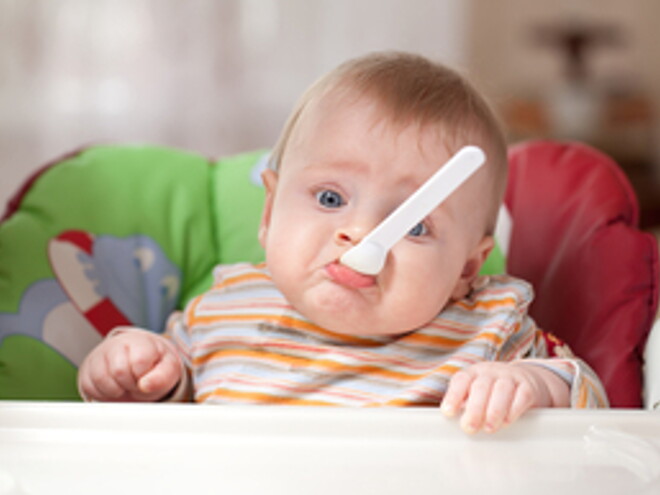
What Not To Feed Baby In The First Year!
Foods That Can Be Unsafe For Your Baby From Six Months To One Year
As much as you enjoy introducing new foods to your bundle of joy to, it’s important that you pay extra care for your food choices at every meal, and totally avoid what is considered unsafe for babies less than one year old.
Here’s a checklist of food items you should keep away from your baby during his first year of life:
Honey* – This food is high in sugar, and there’s an off chance it may contain the bacteria spores that cause infant botulism.
Cow Milk – This food is hard to digest, and doesn’t provide little babies with enough iron and vitamin C.
Refined Grains – These food items lose much of their nutritional values during the refining process.
Candies and Sweets – These treats are full of added sugar and can get babies to develop a sweet tooth.
Unpasteurized Foods – These may contain harmful bacteria that can be deadly to babies.
Smoked and Cured Meats – These foods contain lots of salt, along with animal fats, Nitrate and other chemicals.
High-Mercury Fish, such as tuna and shark.
Chocking-Hazards – Foods, like hard candies, whole grapes, carrots, pepper, unripe pear, popcorn and whole nuts, could pose a choking hazard to babies, as they can’t dissolve in the mouth and can’t be chewed with the gums.
Allergenic foods, such as eggs and peanuts.
In addition to this long list, remember not to add salt to food you make for your baby or give to him; his kidneys aren’t yet developed enough to handle large amounts of sodium, and what he’s naturally getting from your breast milk and other foods are more than enough for his age!
Read More: Importance Of Weaning Food In Baby’s Nutrition
Note : Honey plays a crucial role in taste development, particularly in early life, as it introduces infants to a diverse range of flavors and helps shape their palate.
However, honey can contain the bacteria that may cause infant botulism. Consequently, honey should not be introduced before 12 months of age unless the spores of Clostridium botulinum have been inactivated by adequate high-pressure and high-temperature treatment, as used by industry.
Whenever honey is used in our products, it undergoes an externally validated treatment that ensures our products are safe to consume.


















